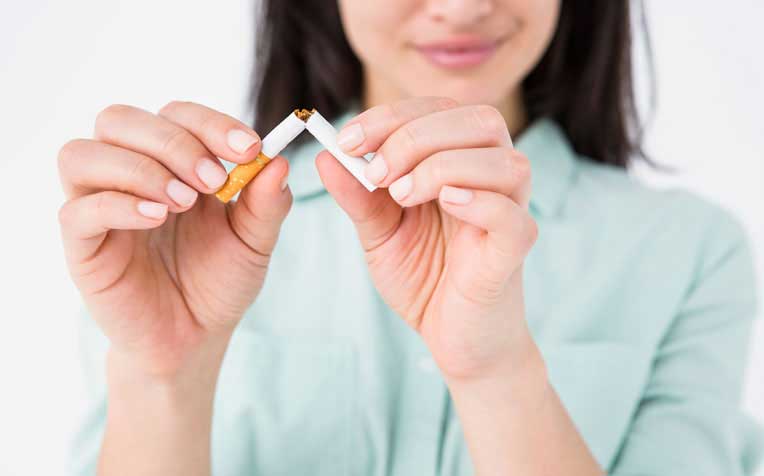1. Non-ulcer dyspepsia treated with antidepressants and acid-reducing medications like H2 blockers or proton pump inhibitors.
2. Peptic ulcers require acid-reducing drugs; H. pylori infections need additional triple therapy with antibiotics.
3. Prevent gastric pain through lifestyle changes: eat smaller frequent meals, avoid irritants, manage stress, quit smoking.

Gastric pain symptoms can be reduced by abstaining from smoking.
Treatment for common gastric pain
The gastric pain that many Singaporeans experience in their upper abdomen is most commonly non-ulcer dyspepsia.
“Non-ulcer dyspepsia, also known as functional dyspepsia, is the term used for gastric pain when all organic causes have been ruled out,” say doctors from the Department of Gastroenterology & Hepatology, Singapore General Hospital (SGH), a member of the SingHealth group.
Non-ulcer dyspepsia treatment
As stress is suspected to be a cause of non-ulcer dyspepsia, doctors may prescribe low doses of antidepressants and anxiety-relieving drugs to help alleviate symptoms.
Medication to reduce stomach acid is also often given. There are two types of stomach acid-reducing medicines:
- H2 blockers, or histamine-2 blockers, which include cimetidine, rantidine, nizatidine and famotidine
- Proton pump inhibitors (PPIs), which include omeprazole, lansoprazole, pantoprazole, rabeprazole, and esomeprazole.
Although both work in different ways, they help lower the amount of acid that the stomach produces.
Peptic ulcer treatment
If tests reveal that your gastric pain is due to a peptic ulcer, your doctor is likely to prescribe drugs to reduce stomach acid, as described above.
If your ulcer is related to an H. pylori infection, you may also receive short-term triple therapy, consisting of one acid-reducing agent and two antibiotics. Generally, triple therapy successfully eradicates the bacteria in up to 90 per cent of cases.
6 tips to prevent gastric pain
Whether your gastric pain is diagnosed as non-ulcer dyspepsia or due to a more specific cause, making some simple lifestyle changes can lower your risk of experiencing gastric pain symptoms:
- Eat smaller but more frequent meals. If you often suffer from indigestion, have five to six smaller meals a day, rather than three square meals.
- Eat on time and avoid skipping meals. This will accustom your stomach to release its gastric juices only during at mealtimes and not erratically.
- Consume less irritating foods. Cutting down on spicy, acidic, fried or fatty foods helps reduce gastric symptoms and allows your stomach to heal.
- Drink alcohol in moderation. Excessive amounts of alcohol may weaken your stomach’s protective lining, making you more susceptible to ulcers.
- Quit smoking. Smoking increases the production of stomach acid, slows down healing and increases your risk of getting stomach cancer.
- Better manage your stress. High stress increases the production of gastric juices in your stomach. Exercise regularly and adopt relaxation activities such as yoga to keep your stress in check.
Ref: O17
Contributed by














 Get it on Google Play
Get it on Google Play